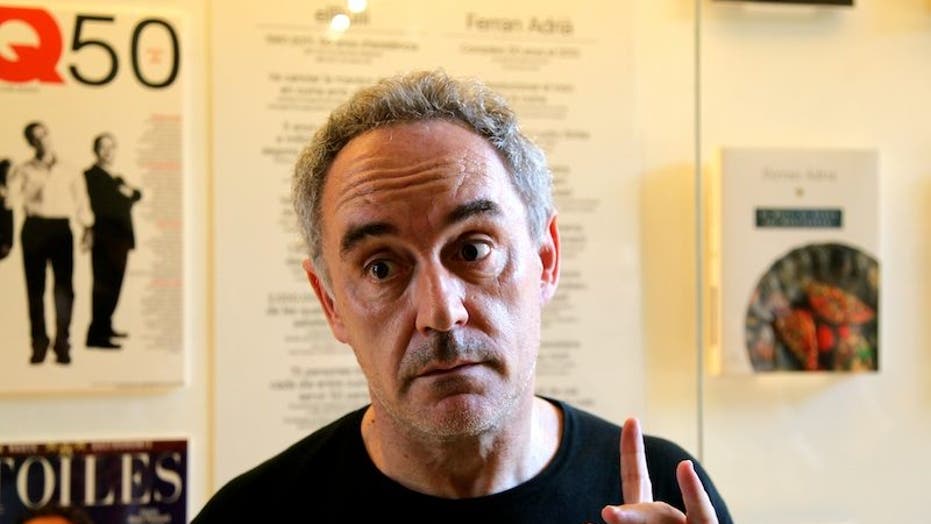For years, he was known as the world's greatest chef, the title affirmed by Michelin stars, a coveted spot on the prestigious San Pellegrino world's best restaurants list, and numerous other awards and designations.
If you wanted to dine at his celebrated restaurant in the small town of Roses in the Costa Brava region of Catalunya, an autonomous region of Spain, you certainly couldn't do so on a whim: reservations were made at least one year in advance, and even then, they were nearly impossible to come by.
So why would the man at the top of his game shutter his world-famous restaurant—one of the few restaurants that can actually claim that title rather than simply aspire to it—and simply walk away?
That's the question restaurant industry analysts, culinary critics, food bloggers, and even mainstream media around the globe asked when Ferran Adria announced that elBulli would close in 2011.
But it was the wrong question, because, as Adria explains, elBulli has not closed. Rather, it is evolving into a new iteration of itself, he says.
- Budget Travel: Most Unusual Hotels in Latin America
- Fashion Week Kicks Off in Spain
- Sizzling Latino Chef: Jose Garces
- Sizzling Latino Chefs: Miami’s Lorena Garcia
- Sizzling Latino Chef: Ray Garcia
- Irene, Spain’s Sandwich Takeover and Pitbull vs Lindsay Lohan: It’s The Week In Latino News
- A Snoozefest, Literally, in Spain
- Sizzling Latino Chef: Aaron Sanchez
“You always have to look ahead,” he said, while leading a small, private group of writers around the exhibit, “Ferran Adria & elBulli, 1961-2011, Risk, Freedom, & Creativity,” which is currently on display at the Palau Robert in Barcelona. The exhibit, which is scheduled to travel to New York, London, and Säo Paulo in 2013, takes up an entire floor of the Palau Robert and still, Adria says, represents only a tiny—albeit important—part of his life's work.
The chef, who turned 50 earlier this month, admits that while he initially resisted the idea of the exhibit -- “I have many projects and demands...I didn't want the exhibit to be all about me”-- he eventually agreed to lend his support, along with hundreds of archival materials that form the bulk of the exhibit.
Part of the reason, he said, was to continue his career-long practice of documenting and then disseminating what he and the more than 2,000 employees who worked at elBulli over the years created in their celebrated kitchen.
Unlike many star chefs, Adria has never guarded recipes as secrets, and his entire process is quite literally an open book (Dozens of books, in fact).
The other reason he supported the exhibit, he explains, is to help demythologize a form of cooking he is credited with inventing: molecular gastronomy, a term that he both dislikes and considers inaccurate.
Many of the techniques used in modernist kitchens today were pioneered in Adria's kitchen at elBulli and at the laboratory/workshop where he and his staff practiced and perfected dishes in their “off-season” (elBulli was not open year-round). But Adria resists the notion of kitchen as chemistry lab, as elBulli was often portrayed.
Instead, he said, the driving philosophy of elBulli was to “make people think,” to help them experience food beyond the five senses by evoking joy, playfulness, surprise, nostalgia, and other emotions that Adria considers part of a “sixth sense.”
And that remains the idea that guides him now as he leads elBulli into its next phase: a foundation think-tank laboratory where risk, freedom, and creativity will be encouraged and supported. The foundation reflects on his restaurant's importance in the world, and previews what we can expect from his foundation.
Follow us on twitter.com/foxnewslatino
Like us at facebook.com/foxnewslatino

